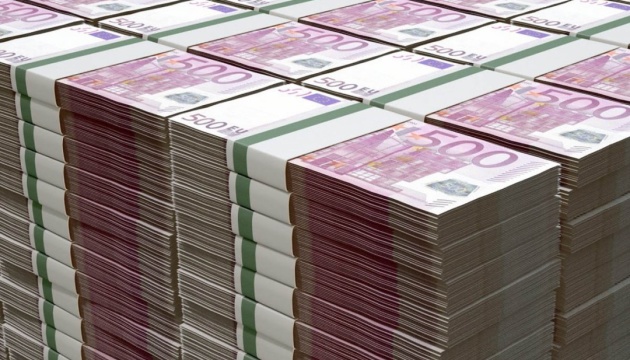
EU mulling EUR 20B contingency plan for Ukraine in case of Hungary's veto - media
The European Union is preparing a reserve facility to provide Ukraine with up to EUR 20 billion in assistance, which would allow to bypass Hungary's veto.
That’s according to Financial Times, Ukrinform reports.
The search for alternative aid options for Kyiv in case the bloc fails to tackle the existing differences began in the EU immediately after the leaders of member states failed to agree on a proposed EUR 50 billion four-year package for Ukraine earlier this month.
Currently, the most practical way to bypass Hungarian Prime Minister Viktor Orbán's veto, if he chooses to apply it at the summit on February 1, is a model providing for guarantees by member states to the EU budget in the amount of up to EUR 20 billion, which will allow the European Commission to borrow up to EUR 20 billion on capital markets in Kyiv’s interest.
The details of the facility are still being discussed, and its final volume will be determined in line with Ukraine's needs at the time.
A similar scheme was applied in 2020 during the COVID-19 pandemic, when the European Commission provided up to EUR 100 billion in funding to EU countries.
This option would not require guarantees and unanimous support from all 27 EU member states and would also allow bypassing Hungary's likely veto.
To this end, some member states, including Germany and the Netherlands, will need parliament’s consent to provide national guarantees. It may take time, but the EU hopes that the required procedures will have been completed by the time the EU has to provide aid to Ukraine before March.
The European Union emphasizes that today there are no technical issues in terms of donating budget funding to Kyiv, but politically "everything is more difficult."
One of the disadvantages of the scheme involving national budget guarantees is that it will be limited to loans and will not include grants from the European Union. However, member states can independently provide grants to Ukraine on a bilateral basis.
At the same time, the EU is exploring an option involving the continuation of this year's scheme, which allowed the EU to transfer EUR 18 billion in cheap loans to Ukraine for a period of several months to a year. The votes of a simple majority of countries are needed to approve the move.
At the same time, the EU emphasizes that approving a four-year aid package for Ukraine, first proposed in June, but blocked by Hungary, remains the best option.
As Ukrinform reported earlier, Foreign Minister Dmytro Kuleba of Ukraine said the U.S. Congress could approve aid to Ukraine any day after January 9, when the House adjourns after the winter break.
